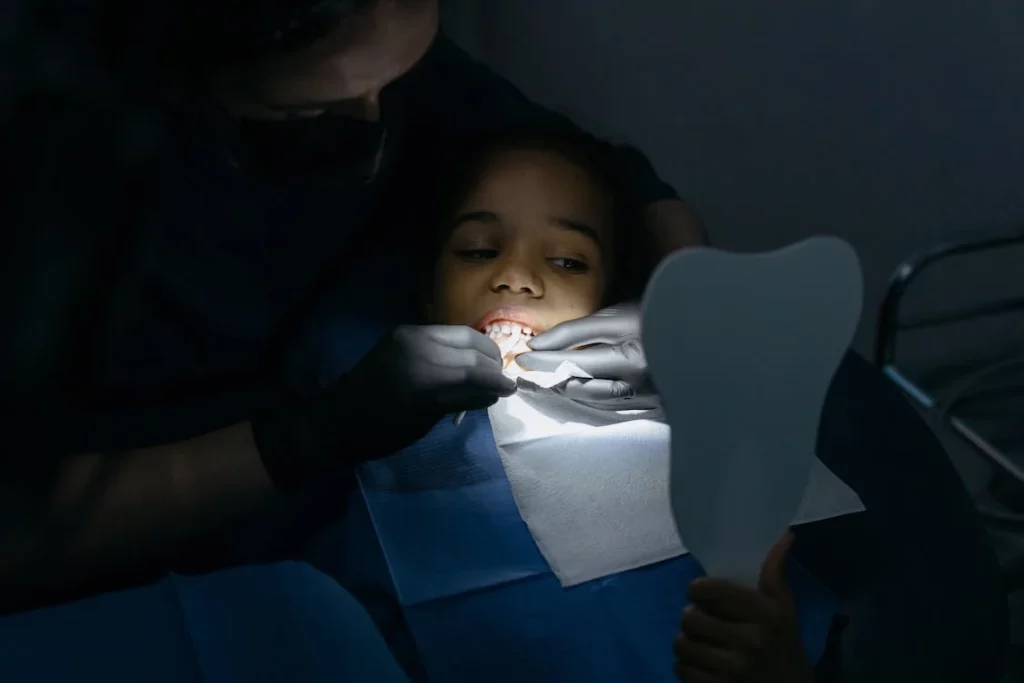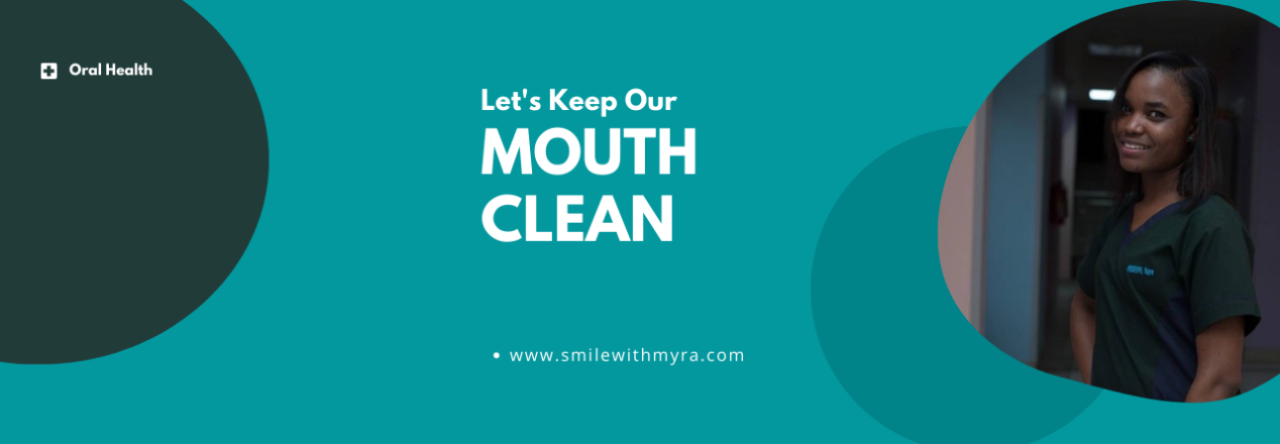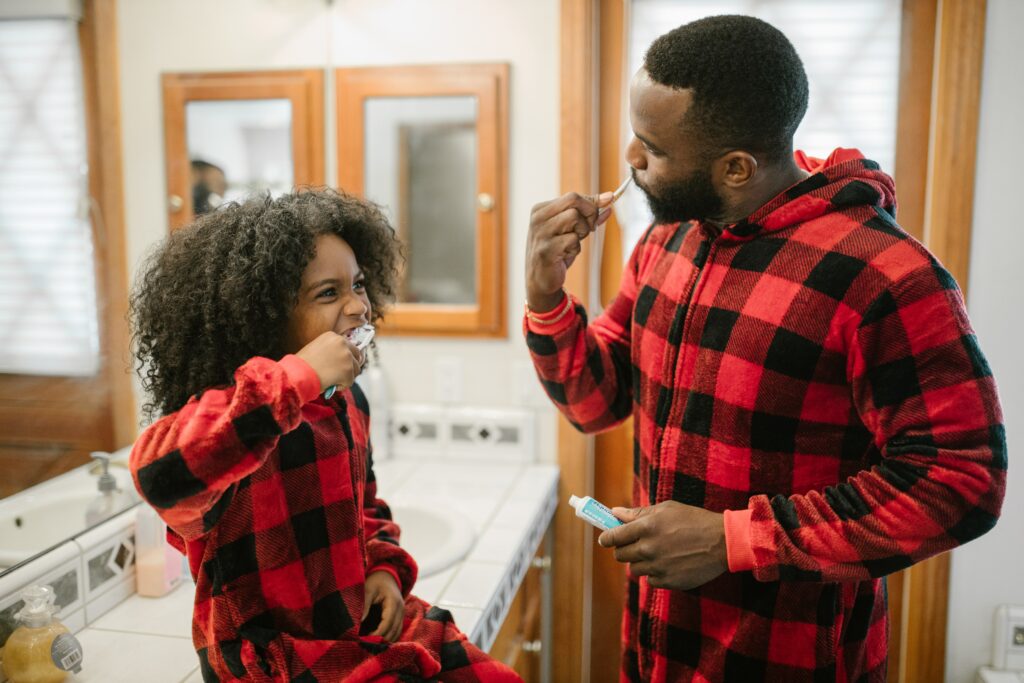
I have had the privilege of working with children and helping them develop healthy oral hygiene habits. It’s crucial to instill these habits at a young age to ensure a lifetime of strong and healthy teeth. In this post, I will provide you with some valuable tips and advice on how to establish good oral hygiene habits in your kids. Let’s get started!
1. Start Early, Start Right:
Oral care should begin even before your child’s first tooth appears. Wipe their gums gently with a clean, damp cloth after each feeding to remove any residual milk or formula. As teeth begin to erupt, switch to a soft-bristled toothbrush specifically designed for infants. For more information on how to get started taking care of your child’s oral health, see my previous post on Start Right: Oral Health Tips For Parents
2. Lead by Example:
Children often learn by observing their parents or older siblings. Make oral care a family affair by brushing and flossing together. Seeing you take care of your teeth will motivate and encourage your child to do the same.
3. Make It Fun:
Oral hygiene doesn’t have to be a chore. Get creative and make it an enjoyable experience for your child. Sing along to two minutes of their favorite tune, use colorful toothbrushes and toothpaste, or let them choose their own toothbrush with their favorite cartoon character. By making it fun, you’ll create positive associations with dental care.
4. Teach Proper Technique:
Show your child the correct way to brush their teeth. Use a pea-sized amount of fluoridated toothpaste and demonstrate gentle, circular motions along the gumline and the surface of the teeth. Encourage them to brush for at least two minutes, twice a day. Remember to emphasize the importance of brushing the tongue to remove bacteria and freshen breath.
5. Introduce Flossing Early:
Flossing is an essential part of oral hygiene that often gets overlooked. Once your child’s teeth start touching, usually around the age of two, introduce flossing. Use child-friendly floss to reach in between their teeth. As they grow older, teach them how to use traditional dental floss.
6. Encourage Healthy Eating Habits:
A nutritious diet plays a significant role in maintaining good oral health. Limit sugary snacks and drinks, as they can lead to tooth decay. Instead, encourage your child to snack on fruits, vegetables, and cheese, which are tooth-friendly choices. Drinking water and diluted beverages instead of concentrated sugary beverages will reduce the risk of cavities and also help wash away food particles.
7. Regular Dental Check-ups:
Schedule your child’s first dental visit around their first birthday or within six months of their first tooth eruption. Regular dental check-ups are crucial for early detection of any potential issues and to ensure proper development of their teeth and jaws. Make these visits positive experiences, and your child will feel comfortable and relaxed during future visits.
8. Emphasize the Importance of Consistency:
Consistency is key when it comes to establishing good oral hygiene habits. Encourage your child to brush and floss every day, even when they don’t feel like it. Help them understand that taking care of their teeth is a lifelong commitment that will benefit them in the long run.
By following these tips and advice, you can lay the foundation for good oral hygiene habits in your children. Remember, dental care is not only about having a bright smile but also about maintaining overall health and well-being. Start early, make it fun, and lead by example. Together, we can ensure your child’s dental health for a lifetime.

